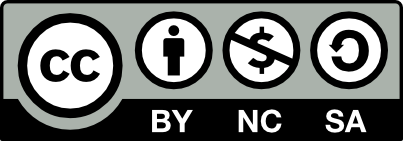Placebo controlled study of Haloperidol in Schizophrenia.
Main Article Content
Abstract
Objective: The present study aimed to compare the efficacy and safety of haloperidol with placebo in firstepisode schizophrenia.
Place and Time: The sample (n=64) was selected from the outpatient department of the Sir Cows Jee Jehangir
Institute of Psychiatry Hyderabad (CJIP). The selected patients were admitted and randomly grouped (32) to receive haloperidol and placebo (multivitamin). This study was single blinded. Duration of study was three months
from Jan 2011 to March 2011.
Results: Improvements in PANSS, PBRS score from baseline, by haloperidol week-1 2.6 ± 1.63, .67, by placebo
1 results showed < 0.05 siginificant. In week-2 3.14 ± 1.95, .74, by placebo 1.50 ± .71, 50, results showed <0.05
significant. In week-3 2.6 ± 1.63, .67 results showed <0.05 significant. In week-4 3.00 ± 1.58, .71. by placebo 1
results showed <0.05 significant. In week-5 2.50 ± 1.29, .65, by placebo 1 results showed >0.05 insignificant. In
week-6 3.00 ± 1.58,.71, by placebo1 results showed >0.05 insignificant.
Conclusion: In patients with schizophrenia, haloperidol is better than placebo for disease improvement but increases the rates of parkinsonism, akathisia, and acute dystonias substantially.
Key Words: Psychosis, Schizophrenia, Haloperidol, Placebo, Akathesia, Dystonia.
Downloads
Article Details

This work is licensed under a Creative Commons Attribution-NonCommercial-NoDerivatives 4.0 International License.
Journal of Muhammad Medical College (J Muhammad Med Coll) belief that all researches are basically conducted for the benefit of humanity. Research is the product of an investment by society and consequently its fruits should be returned in a transparent fashion to all humankind without any discrimination.
Journal of Muhammad Medical College is an open access journal which means that all content is freely available without charge to users or / institution. When used non-commercially all users are allowed to read, download, copy, distribute, print, search, or link to full text articles in this journal without asking prior permission from the publisher or author as long as original author(s) are acknowledged.
Journal of Muhammad Medical College operate under Creative Common License CC-BY-SA that allow reproduction of articles free of charge, for non-commercial use only and with the appropriate citation information. All authors publishing with Journal of Muhammad Medical College accept these as the terms of publication.

This work is licensed under a Creative Commons Attribution-NonCommercial-ShareAlike 4.0 International License